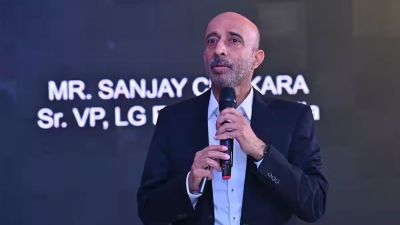Indegene, a Bengaluru-based healthtech company is developing capabilities in generative AI to help pharma companies deliver drugs faster to patients, while bringing down the costs of sales & marketing for them. The company offers a range of services including digital solutions, commercialisation strategies, and support for clinical trials, safety, and regulatory operations. In Q1FY26, Indegene maintained a trajectory of stable and profitable growth, recording Rs 760.8 crore in revenues compared to Rs 676.5 crore during Q1FY25. Tarun Mathur, CTO at Indegene speaks to Sudhir Chowdhary on how pharma companies can learn to scale GenAI and address the industry’s unique challenges. Excerpts:
Has GenAI adoption in pharma reached a tipping point?
Pharma has a diverse range of use cases where GenAI-backed transformation of existing processes could yield valuable business as well as patient, caregiver, and regulatory outcomes. And multiple use cases across the pharma life cycle have progressed beyond early experiments and have either scaled into production or are in the process of doing so.
That said, enterprises continue to evaluate the art of possibility and identify more opportunities. Experimentation remains a part of continuous innovation. Pharma leaders are figuring out how to scale and facilitate the change management that comes with GenAI adoption.
What kind of guardrails are needed for its responsible use?
From a technology perspective, governance is crucial. This not only establishes the standards for enterprise-specific guardrails, but also the standards for which models and technical frameworks to trust, how to deploy them, and how to establish observability around the agents using them.
Globally, health authorities are increasing their compliance requirements. Establishing trust with GenAI also requires systems architectured for transparency, data provenance, and fairness. AI models trained on patient data must adhere to data privacy regulations such as HIPAA and GDPR.
Which emerging trend holds the most long-term potential?
I think there are two trends. First, all information will be designed for natural language conversational GenAI. We will see data and interoperability standards change to adapt to this trend. Look at the open-source NLWeb from Microsoft as an early indicator of this shift. For the pharma industry, this has significant implications in designing systems and processes that mitigate risks, establish trust, and employ robust guardrails. Second, deep research enabled agents will drive innovation and complex process transformations. Look at the recent product launches from Perplexity and OpenAI where deep research reasoning models coupled with tool-enabled agents can research problems with depth. We have just started exploring the art-of-possible with this capability.
What does Indegene do in the life sciences industry?
Indegene is exclusively focused on the life sciences domain with 25+ years of operational experience working with pharma companies, including the world’s top 20. Given GenAI adoption is fueling pharma transformation, the core issues around accuracy, compliance, safety, and, critically, change management are the bottlenecks to the transformations. Solving these requires deep domain expertise and experience, along with advanced technical competencies. Indegene is unique in that it sits at exactly that intersection. We are dialing up investments in GenAI and investing in building a strong workforce. We have developed a robust approach to build, test, deploy, monitor, and improve GenAI agents using our Cortex platform.
How do you embed a GenAI-first mindset across teams?
Our key initiative is ‘GenAI@Work,’ a transformative programme empowering nearly all of our 5,000 employees. The initiative enables future-ready careers by training our talent to leverage GenAI for personalised solutions, enhanced customer engagement, workflow automation, and smarter decision-making. We are deploying GenAI within our own core business processes, and we are already seeing significant productivity gains. We have also instituted a programme called ‘Geniuses’—this facilitates formal training on advanced GenAI topics and provides hands-on mentorship and experience across functions.








